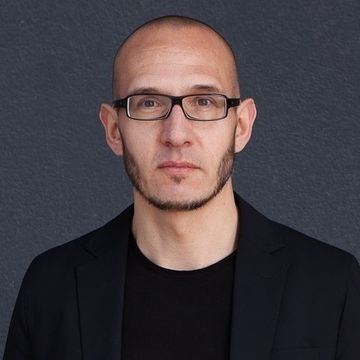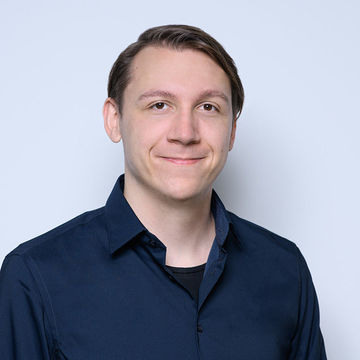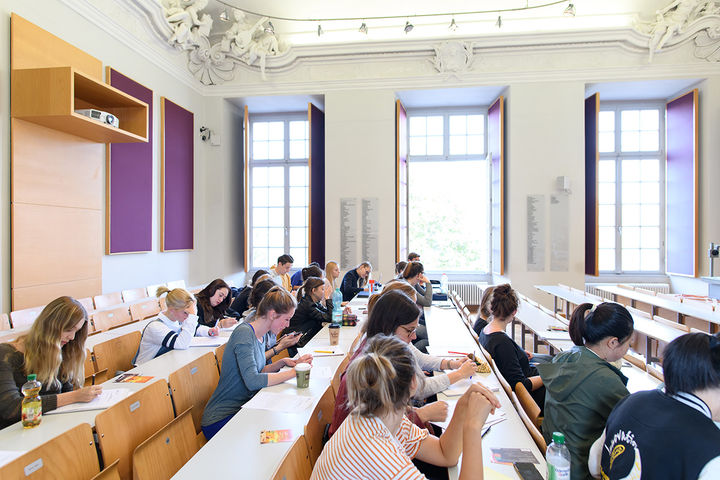Specialization seminars
Specialization seminars in the 2023 fall semester
Literary Reading
The focus of this seminar is literary reading, both in the form of the reception of printed books and via digital devices. Preparing for the project seminar that will follow in the following two semesters, the topic will be explored on the basis of the following questions: Who reads which literary texts in which form? Why are the respective texts read, how are they processed, and what effects does literary reading have?
The seminar is held by Prof. Dr. Peter Vorderer.
Young people and trust in media
Trust in media (also: media credibility) is an established field of research. However, research is predominantly focused on adults and rarely deals with younger people. Thus, one of the important prerequisites for the development of trust attitudes has been studied very little. In addition, the use of news media or, more generally, of information sources has changed dramatically with the internet. Against this background, after a basic introduction to the topic of “trust in media”, the seminar will deal with previous research on young people's trust in news media or sources of political and social information. The aim is to provide a systematic overview and classification of previous findings as well as to identify possible research gaps. At the end of the seminar, we will discuss research ideas that could be addressed in the subsequent two-semester project seminar.
The seminar is held by Prof. Dr. Matthias Kohring.
Specialization seminars in the 2022 fall semester
Cancel Culture
The term “cancel culture” is used to describe efforts to exclude people from public communication on the basis of alleged moral misconduct. The term is not neutral, however, but a political buzzword intended to reject these exclusion efforts in principle. But isn't the exclusion of people from public communication sometimes justified? Where exactly is the line between legitimate moral criticism and harmful outrage hysteria? In this seminar, we want to explore these questions using scientific theories and studies as well as by analyzing individual cases. We will also analyze whether social network media contribute in real time to an outrage spiral that poisons the social climate of debate – and how journalistic editors, network companies and we as individual media users can deal with “cancel culture” tendencies.
The seminar will be led by Prof. Dr. Hartmut Wessler in cooperation with Prof. Tanjev Schultz (University of Mainz).
How I influenced myself when I tried to influence others....
“People use media content and this has various effects on them.” Numerous media impact studies are based on this logic – which is, of course, greatly simplified here. They look at how people are influenced by media content that others have produced. What is often not taken into account is that users of social media also produce messages themselves and can thus influence themselves. For example, users portray themselves in social media, comment on social debates, or like posts by others. In this way, these users not only produce effects on others, but can also convince themselves, mobilize themselves, feel better about themselves, and much more. We therefore deal with so-called self-effects of communication in social media. We will collect theoretical and empirical literature that provides evidence for self-effects, discuss and systematize them, and apply them to examples from social media practice.
The seminar is led by Prof. Dr. Teresa Naab.
Specialization seminars in the 2021 fall semester
Are we well informed!?
News and information consumption has profoundly changed through the increasing digitalization of our media environment. Instead of following the news on TV at 8 pm in our home or reading the paper in the morning at the breakfast table, nowadays we are able to take in current news and information everywhere and at any given time through social media channels. This fosters the perception of being well-informed. But how much do we actually know about political events at the end of the day? This seminar will focus on political knowledge in digital media societies, taking into account different modes of reception (incidental and intentional news exposure) and practices (reading, sharing, commenting), as well as phenomena of algorithmic and social selection of news and information use. Expanding on the current state of research we will analyse and debate questions of political knowledge within digital media societies. The seminar is held by Interim Professor Sarah Geber.
„Wissenschaft im Netz“ / „Science on the net“
The internet, at least theoretically, facilitates unprecedented possibilities for science communication – through science journalism, academic public relations, or through forums for (partially contested) science topics and blogs by individual scientists – allowing “enough space” for the public to participate in every discussion. Against this backdrop we will have a general introduction into science communication, after which we take inventory of “science in the web”. We will look for changes in science communication and public communication about science (including scientific desinformation) and discuss potential impacts on the relationship between science and society. The seminar is held by Prof. Dr. Matthias Kohring.
Specialization seminars in the 2020 fall semester
Überwachung / Surveillance
The term “surveillance” refers to the collection and processing of personal data to be used for planning, controlling or behavior management. With the wide-ranging digitalization of communication this phenomenon gained new social relevance. Every online activity leads, to different degrees, to the collection and storage of individual traces, which can be linked up to predict future (individual) behavior. While surveillance used to be discussed in terms of state control (and public care), today commercial forms of surveillance and their risks for free societies and individual rights, e.g. the right to privacy, are at the center of attention.
In this seminar we aim to clarify central concepts, to take stock of the phenomenon “surveillance” and we debate how to evaluate the effects for individuals and society at large. Towards the end of the seminar we will discuss potential ideas for research, which can be carried out in the correspondent project seminar of the following two semesters. The seminar is held by Prof. Matthias Kohring.Die demokratische Qualität von Online-Debatten / The democratic quality of online debate
After a phase of euphoric expectations regarding the renewal of democracies through internet communication, today scepticism prevails: Buzz words like Hate Speech, Fake News and Polarization feed doubts whether online communication can actually contribute to plural, respectful and fair public debate at all. This seminar first takes stock of what we already know about the democratic qualities of online debates – in comment sections on news websites, on Twitter, Facebook or WhatsApp. We will then assess different possible solutions: How can individual user interventions, media regulations, or improved software solutions, respectively, contribute to increasing the quality of public discourse? The seminar is held by Prof. Hartmut Wessler.
Specialization seminars in the 2019 fall semester
Distrust – and the media / Misstrauen – und die Medien
Distrust has always played a minor role in the field of trust research. Recently, however, more attention has been paid to this concept – especially as regards politics and the media. It has become apparent, however, that the term is being interpreted and assessed differently. In the course of the seminar, students learn what distrust means and why this concept can be useful in addition to the concept of trust (or lack of trust). The title of the seminar is supposed to draw attention to the fact that, on the one hand, people tend to have less and less trust in the news and, on the other hand, that the news themselves can convey distrust to other areas of society. The seminar is held by Prof. Matthias Kohring and Prof. Angela Keppler.
Digital Reading (of fiction and newspapers) / Digitales Lesen (am Beispiel fiktionaler Literatur sowie der Tageszeitung)
In the course of this specialization seminar, students address the question of who reads what kinds of contents today (newspapers on the one hand and fiction on the other hand) as well as how thoroughly and why we read them. The aim of the seminar is to assess the current situation as well as changes compared to analog reading and to provide possible explanations for these changes. The seminar is held by Prof. Peter Vorderer.



